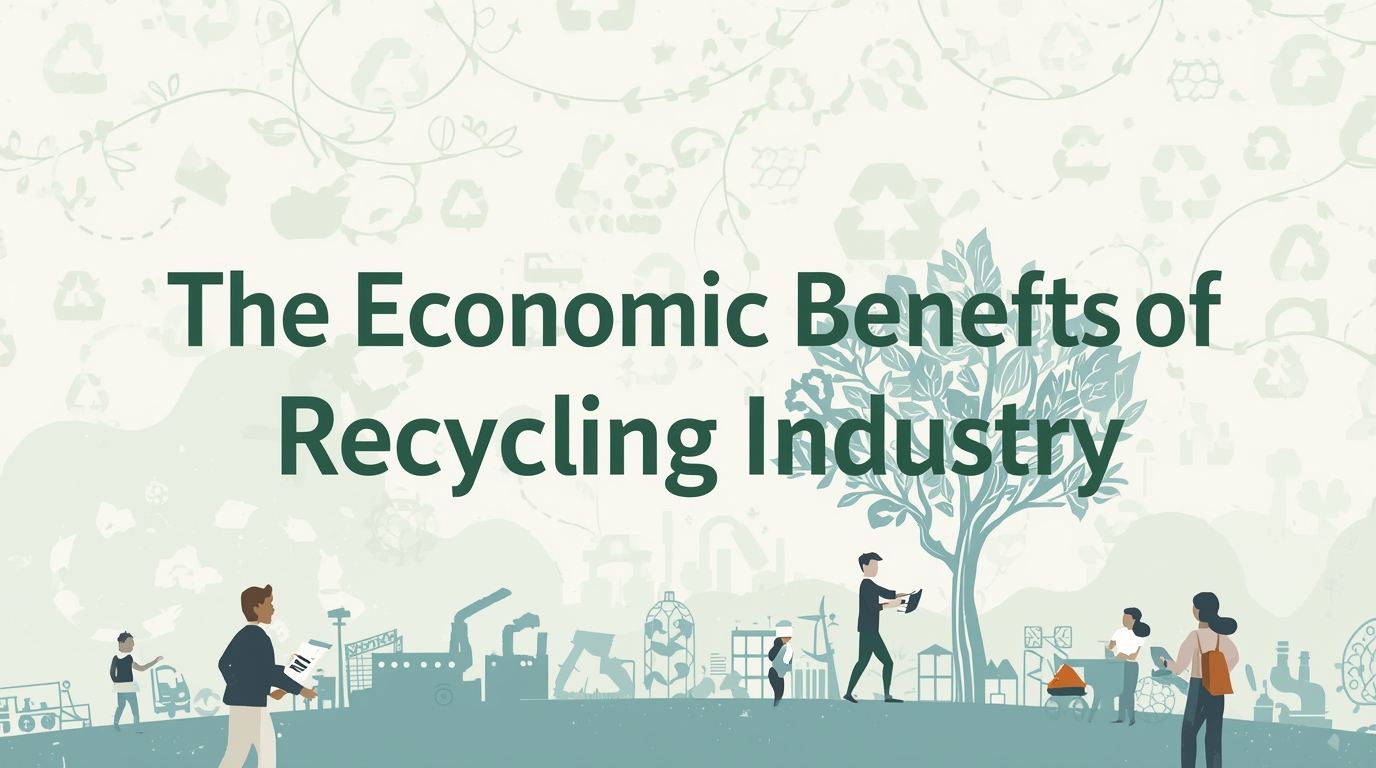Recycling has transformed from a small-scale environmental movement into a fundamental component of sustainable economic systems across the globe. A robust recycling industry yields numerous economic benefits, enhancing growth, providing jobs, and fostering innovation. These economic advantages underscore the need to bolster recycling efforts, making them a pivotal aspect of modern economies transitioning toward sustainability.
The recycling industry plays a significant role in job creation. A well-developed recycling sector requires a substantial workforce to handle collection, processing, and distribution activities. According to the Institute for Local Self-Reliance, for every job in waste disposal, recycling creates four. This ratio highlights the labor-intensive nature of recycling systems and their capacity to generate employment opportunities at various skill levels. Diverse job roles, from collection truck drivers to sorting staff and product development engineers, illustrate the wide range of employment options available within the recycling industry.
Moreover, a successful recycling industry reduces costs associated with waste management. Municipalities often face significant expenses related to waste collection and landfill management. Landfills occupy vast tracts of productive land while posing environmental threats through pollution and greenhouse gas emissions. By diverting materials away from landfills, recycling helps municipalities lower operating costs, freeing up funds for other public services or improvements. Cost reductions can also be transferred to consumers through lower waste collection fees, offering financial relief to households.
The recycling industry contributes significantly to resource efficiency by ensuring that materials are reused rather than discarded. By processing materials like paper, metals, and plastics into reusable formats, recycling reduces the demand for raw material extraction. This reduction in raw material consumption leads to fewer mining and deforestation activities, conserving natural resources and decreasing environmental degradation. The financial savings from diminished resource extraction are immense, as industries spend less on sourcing new materials while simultaneously reducing their ecological footprint.
Innovation thrives within a vibrant recycling industry. Many companies and start-ups focus their efforts on developing new technologies to improve recycling processes, increase material recovery rates, and enhance product quality. Recent advancements in recycling technology have introduced automated systems using artificial intelligence for sorting recyclables, making the process faster and more accurate. These innovations not only elevate material recovery rates but also promote economic growth by reducing operational costs and opening new markets for recycled goods.
The recycling industry stimulates economic activity through the secondary materials market. Recycled materials are valuable commodities in global markets. Recycled aluminum, paper, glass, and plastics can be sold domestically and internationally, generating revenue for businesses involved in collection, processing, and distribution. Markets for recycled goods have expanded significantly, driven by rising demand for sustainable practices and consumer products. Companies utilizing recycled materials often achieve cost savings, as recycled goods are usually cheaper than their virgin material counterparts. These savings incentivize businesses to invest in recycling efforts and stimulate further economic activity.
Energy savings represent another economic advantage generated by the recycling industry. Manufacturing products from recycled materials generally consumes less energy compared to producing the same products from virgin resources. For example, using recycled aluminum can save up to 95 percent of the energy required to make aluminum from raw bauxite ore. These energy savings translate directly into cost savings for manufacturers, increasing profit margins and fostering competitiveness in the global marketplace.
In terms of environmental economics, recycling significantly reduces the external costs associated with pollution and resource depletion. By minimizing reliance on resource extraction and reducing waste production, recycling curtails pollution levels in air, water, and soil. These reductions lower public health risks and associated healthcare costs, as fewer individuals suffer from pollution-induced health conditions. Furthermore, conserving resources preserves biodiversity and ecosystem services, maintaining the natural capital that supports agricultural output, tourism, and other economic sectors reliant on a healthy environment.
Governments also play a crucial role in amplifying the economic benefits of recycling. Through favorable policies such as tax incentives for businesses that incorporate recycled materials into their production processes or subsidies for recycling facilities, governments can stimulate growth within the recycling sector. Regulations mandating minimum recycled content for specific products can drive demand for recycled materials, enhancing industry stability and expanding market opportunities.
Economic ripple effects extend from the recycling industry to related sectors, fostering an interconnected web of economic growth. Companies producing recycling machinery, developing recycling-associated software, or supplying recycling bins and related materials benefit from a robust recycling sector. These auxiliary industries generate additional economic activity and job creation, further reinforcing the comprehensive benefits of a strong recycling system.
The economic benefits of a robust recycling industry are extensive and multifaceted, impacting various sectors and contributing significantly to overall economic sustainability. By creating jobs, reducing costs, fostering innovation, and conserving energy, a robust recycling industry lays the foundation for an economy better positioned to meet the challenges of the 21st century. The global movement toward sustainable development hinges upon these economic advantages, making the expansion and support of recycling industries a critical priority for policymakers, businesses, and organizations worldwide.



